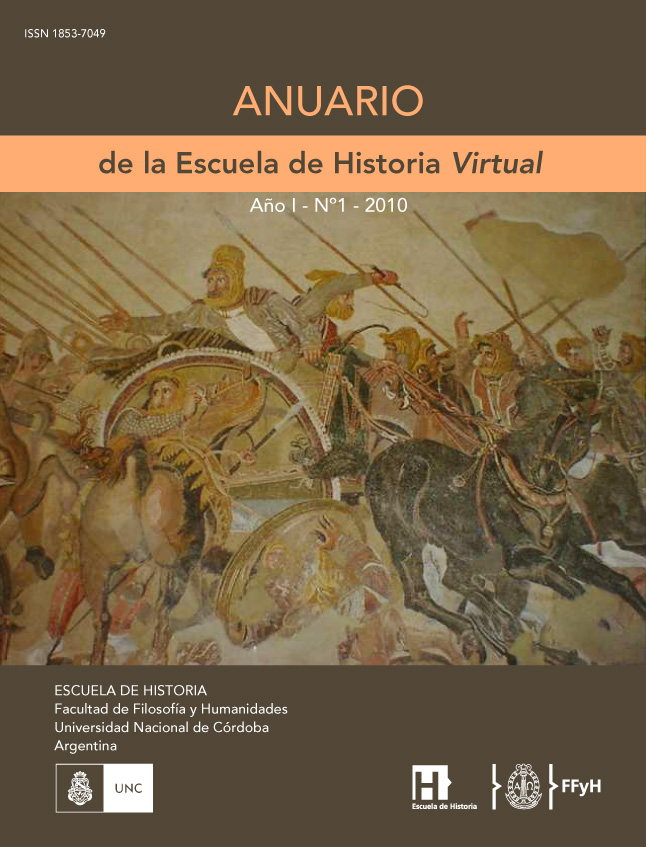South Africa: The Working class and the National African Congress after the Second World war
Main Article Content
Abstract
The subject to work will be “the nationalistic movements and the working class in South Africa”, in the period that goes from World War II until the beginning of the Sixties. More specifically one will analyze how the South African nationalistic movements, mainly A.N.C. (African National Congress), they league together to an important number of African workers and to the unions direct that them; one will settle down which were their political programs and their strategies of fights against the government of the Union and the English Empire for national independence; and from this to establish its tactical and programmatic limits, maintaining like hypothesis of work that in South Africa, given the structural importance of the working class, existed the possibility of a program and a Political Directorate that organized of the workers with its own methods of fight and that outside beyond political and national independence, that is to say a socialist alternative; and that, for it, it clearly defined that the fight by independence had against to be, not only of the government of the white minority, but also of the true beneficiaries of the regime of segregation and over-exploitation: the transnational companies of foreign capitals, mainly British. In order to maintain this hypothesis a structural analysis of the different social classes will be realized in South Africa from a Marxist glance, as thus also the diverse taken fights are analyzed you advance by the South African workers and the answers that to these gave the parties and unions directed that them.
Article Details
Bajo los siguientes términos:
Atribución - Usted debe dar el crédito apropiado, proporcionar un enlace a la licencia e indicar si se hicieron cambios. Usted puede hacerlo de cualquier manera razonable, pero no de ninguna manera que sugiera que el licenciante lo respalda a usted o a su uso.
No comercial - Usted no puede utilizar el material con fines comerciales.
NoDerivados - Si remezclas, transformas o construyes sobre el material, no puedes distribuir el material modificado.
